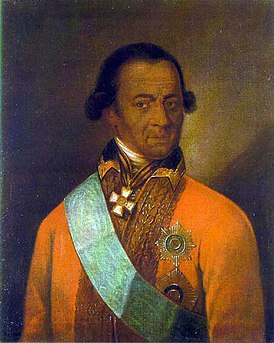
This is the fifth post in the our series Race&IR.
Black Lives Matter has spearheaded a massive reckoning of race relations in the US and around the world, but not so much in Russia. The discipline of IR may have started a bit earlier than this year’s protests: there have been a number of interventions that have brought the issue of race to the forefront of teaching and research – even though it should have always been there at least since DuBois. Not everyone is happy though: right-wing media cry “cancel culture” and debates on the merits of critical approaches somehow make national news.
Russian mainstream IR community has been slow in embracing this problematique – even though Russian IR itself has been often considered as one of the examples of non-Western IR. A recent piece in “Russia in Global Affairs” by Dr. Alexander Lukin seems to make a point similar to a lot of critical scholars and scholars from the Global South: “It is necessary to correct the West-centric bias … by gradually introducing more information about the non-Western world into the teaching of history and international relations”. Fair point? Yes, absolutely. Alexander Lukin argues further that “a new all-encompassing totalitarian theory is approaching us, according to which all social and historical phenomena will need to be analyzed from a “racial” point of view, just as the Marxists analyzed them from the point of view of the “class struggle.””. How do you like them apples?
Let me walk you through some of the peculiarities of the Russian mainstream IR. Apart from an inordinate amount of condescension and sexism in the Global Affairs piece, where Dr. Lukin invariably attacks the credibility and professionalism of young female scholars, he picks up on the recent debates in IR community and copy-pastes the Buzan/Waever response to the Howell/Richter-Monpettit article in Security Dialogue on securitization theory. Dr. Lukin was particularly offended by Foreign Policy’s “Why Race Matters in International Relations” by Dr. Meredith Loken and Dr. Kelebogile Zvobgo, where he refuses to debate the “absurd claims” the authors make, for instance, that race shapes threat perception and responses to violent extremism.
In the quest to impugn the downfall of Western IR due to inclusion of critical, post-colonial and anti-racist approaches (it’s also emblematic that gender inequality has scare quotes), Dr. Lukin accuses critical scholars of being his middle school teacher who claimed that mathematics is a science of the party. In his understanding, anti-racist approaches are to modern IR what Marxism was to science in Soviet Union: it had to be everywhere. Moreover, Dr. Lukin argues that the reason for the anti-racist and post-colonial theory boom is the fact that colonial subjects and their offspring brought to the Western universities a “post-colonial syndrome”, – according to Dr. Lukin, “the myth that the West only conquered and oppressed everyone, the non-Western world lived before colonialism in prosperity, peace and harmony, and then the Western conquerors brought with them terrible stagnation and humiliation, removed resources, so the former colonies now need reparations”.
This new turn in Western IR means, according to Dr. Lukin, that “United States and Europe are no longer free societies” compared to Russia that does not suffer from cancel culture and political correctness that forces university professors to “repent” for the politically incorrect things they say (Fox News reference detected). Dr. Lukin concludes that American and European journals are doomed because they would only publish ideologically correct articles, while Russia does not need the racial reckoning because serfdom was not race-based and a black-skinned Abram Hannibal managed to become a general in 18th century Russia (*cough* General Alexandre Dumas *cough*).
Putting all the sexist condescension aside, Lukin does make a valid point about the inclusion of non-Western IR – a point that has been made many times before, while Andrey Makarychev and Viacheslav Morozov pointed out the trap of epistemological relativism in Russian IR back in 2013. Obviously, Dr. Lukin does not speak for the whole of Russian IR, but critical race studies and even the topic of race is largely absent from Russian mainstream IR journals, such as International Trends or the above mentioned Global Affairs. It is not only because this one time a black person became a general in Imperial Russia and solved racism for the 1/6 of the Earth’s territory. It is because mainstream IR in Russia never faced a coming to terms with its own colonial past and the treatment of colonized and indigenous populations. Even worse, the general populace still thinks that before Russians came to Siberia “women could be sold for a pack of sables”, and some representatives of the liberal opposition call the mayor of Moscow a “reindeer herdsman” and worry about the integrity of Louis Vuitton boutiques instead of police brutality. Yes, Russian serfdom was not race-based, but it does not mean that there was no racial hierarchy in the Soviet Union or there is no racial discrimination in Russia today. The fact that the people who are discriminated against in Russia are considered – and called – black only proves a critical race studies point: blackness is a construct used to create a racial hierarchy and justify exploitation. Yes, in Russia too, it is just aimed at labour migrants from Central Asia.
To borrow from the Lukin article’s style, there are several things that Russian IR needs to acknowledge. First, Russian IR scholars have to realize that IR as a discipline was conceived because, to put it bluntly, a lot of Western thinkers didn’t know what to do with people of color: to civilize them, kill them or not let them into their white countries. Second, there has been an erasure of BIPOC and female thinkers from Russian IR syllabi. Third, civilizationist vocabulary is alive and well in those syllabi and Huntington’s “clash of civilizations” argument is published uncritically by leading IR schools. Fourth, throw some gender at those syllabi while you are at it? Fifth, Russian IR only marginally dealt with Russia’s own colonial exploits, it needs to do more.
While Dr. Lukin predicts the downfall of Eurocentric IR due to “totalitarian race ideology”, I bet he was never racially profiled in the Moscow underground or discriminated in the housing market because his name was not “Slavic enough”. Based on the article, it does not seem that he acknowledges his positionality in research. It is possible, however, that he heard a joke in our common alma mater – Moscow State Institute for International Relations – that “we have only one female ambassador, in Mauritius, and when they eat her, we will send another one”. As one of my German friends said upon hearing this anecdote, but this joke is both racist AND sexist, how can a professor at an IR school say that?
The article in Global Affairs can tell you why.
Elizaveta Gaufman is Assistant Professor of Russian Discourse and Politics at the University of Groningen, the Netherlands. She is the author of "Everyday Foreign Policy: Performing and Consuming the Russian Nation after Crimea" (2023) and "The Trump Carnival: Populism, Transgression and the Far Right" (2024).


0 Comments
Trackbacks/Pingbacks